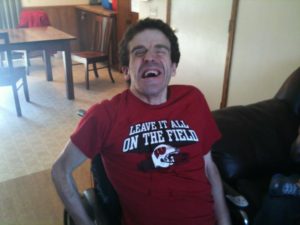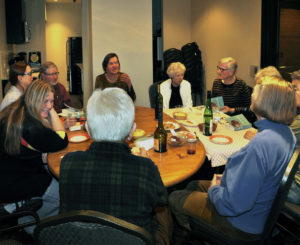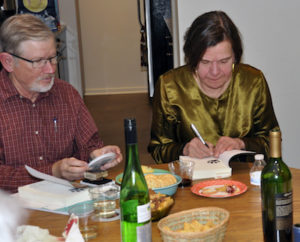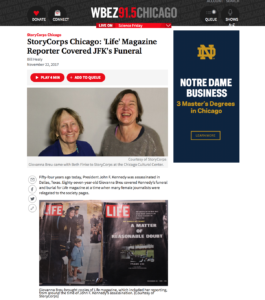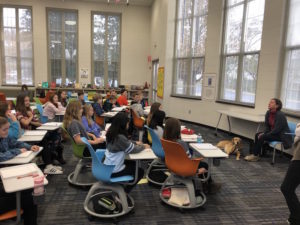Guest post: Papa’s black leather jacket
November 29, 2017 • 23 Comments • Posted in careers/jobs for people who are blind, guest blog, memoir writing, teaching memoir, writing promptsHere’s one last essay I want to share from the “The Best thing I Ever Bought, Borrowed or Stole” assignment I gave to my memoir-writing classes. This one is written by Michael Graff, who grew up in a suburb of Chicago called Flossmoor. The “Pink House” he refers to in his story is their family’s vacation home near Lake Michigan.
by Michael Graff
I didn’t buy it, I didn’t steal it. I must have borrowed it from my brother, Phil.
It was our grandfather’s black leather jacket. He’d given it to my brother, but when he went off to college, Phil left it behind. That’s when I borrowed it. Actually, I commandeered it.
The leather didn’t have the original shine nor the chrome hardware of a biker’s jacket. It didn’t have patches that said, “Hell’s Angel’s.” It had a narrow cloth collar and cuffs. The coat of a working man.
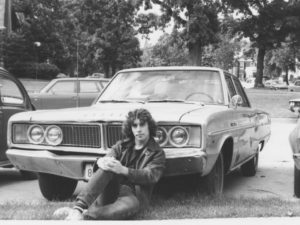
Michael Graff in front of his 1966 Dodge Dart, sporting his black leather jacket.
Poppa told me he bought the jacket when he was 18. It was in decent shape with little wear on the elbows and cuffs. Seasoned, it had a faded look, but had years of life left in it.
I liked Papa’s jacket. It added a certain toughness to my appearance. It had an understated ruggedness that wasn’t intimidating nor confrontational, but also wasn’t the look of Flossmoor.
Poppa bought the jacket in 1918. It was over fifty years old when I obtained it. Phil saw me wearing it, but he never wanted it back. Maybe it fit me better. I wore it constantly from my teenage years until the jacket had its seventieth birthday.
That’s when the leather finally crumbled.
I couldn’t part with it. The coat remained on a coatrack in my office. The summer humidity allowed mold to fester on its sleeves. Even my elderly grandfather admonished me as to why I kept the old thing. He shrugged and said, “I suppose it holds some sentimental value.” By then he was in his late eighties.
What could I do with it? Goodwill wouldn’t take it. The trash heap seemed heartless and too disloyal toward a garment that had kept generations of my family warm. Burial seemed appropriate. I’d bring my beloved jacket to Pink House where it would degrade in our yard. The leather would serve as nutrients for our plants and trees. The jacket would remain in a place I loved forever, and someday one of my progeny would dig in the garden, find the zipper and wonder from whence it came.
But then the coat disappeared. In the nineties, Graff Valve and Fitting’s had it’s offices rebuilt. We moved into temporary space. My grandfather’s coat was moved into the warehouse, where I assumed it would remain on the old coat tree. When the reconstruction was finished, the jacket was missing.
At first I didn’t give it too much thought. Periodically, I’d wonder where it was, but I was certain it would turn up. After Papa died, I searched the warehouse for it. No luck.
Part of me still wants to find it. Occasionally, I’ll give a half hearted search, but I doubt it will ever turn up.
Another part of me is content in the knowledge that it’s lost in my warehouse because my grandfather is lost to me now, too. He loved our business and warehouse, but he never saw Pink House. I’m content his jacket vanished into space he loved.
